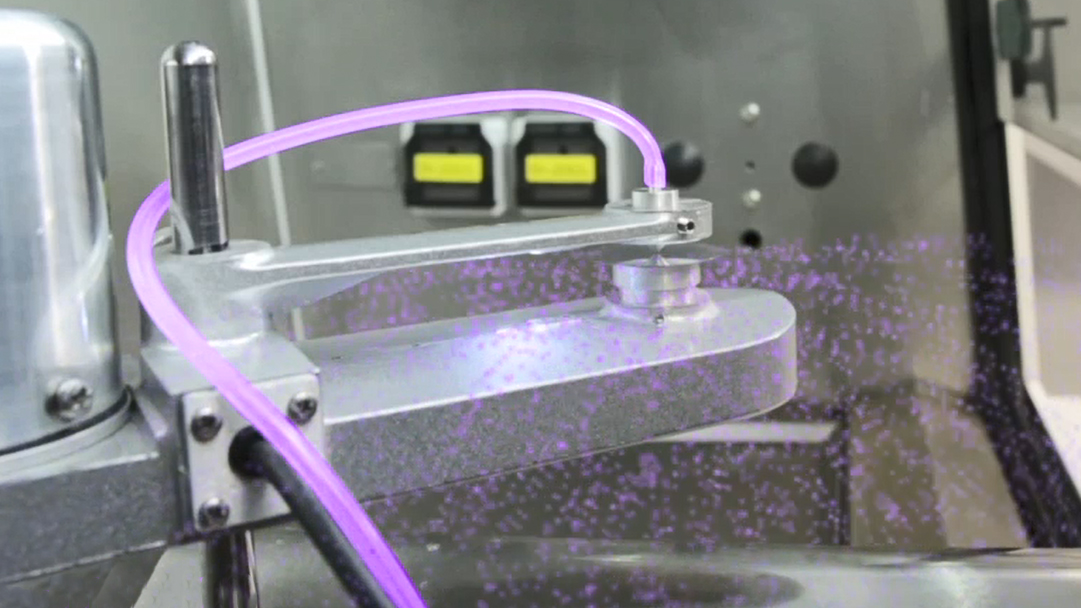The Ki-Discus Test
The KI-DISCUS Test is defined in the European Standard for microbiological safety cabinets, EN12469:2000 as a test method for validating the operator/aperture protection performance of microbiological safety cabinets.

Suitable for testing class I, class II and hybrid cabinets, as well as for cross contamination applications.
Suitable for all open-fronted CabinetsOperator protection factor can be determined rapidly by viewing the treated filter membranes.
Rapid Accurate ResultsDeveloped to carry out testing in accordance with BS EN12469:2000
Industry Approved TechnologyThe Ki-Discus Test Principle of Operation
A fine mist of potassium iodide droplets, produced by a spinning disk, is used as a challenge aerosol to measure the containment of a cabinet or fume cupboard. Centripetal collectors sample the air outside or inside the cabinet – depending on the nature of the test. The collectors deposit any potassium iodide particles that are in the sampled air on to filter membranes. At the end of the sampling period the filter membranes are placed into a solution of palladium chloride whereupon the potassium iodide “develops” to form clearly visible and easily identified brown dots.
A knowledge of the number of droplets in the challenge produced by the spray generator and the number collected in the air samplers enables the protection factor for the cabinet to be calculated. All open-fronted microbiological safety cabinets are assessed on this protection factor.

British & European Standards Related to the Test
Interested in learning how to test with Ki-Discus?
Contact Us
Send an enquiry through the form below and a member of the team will get back to you!
